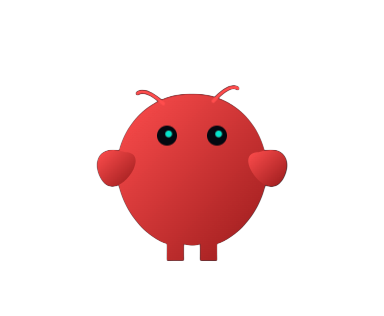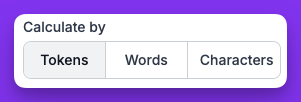Mistral AI Models Pricing Calculator
Estimate and compare the costs for Mistral AI's newest models including Mistral Small Creative, Devstral 2 2512, Ministral 3 14B 2512, Ministral 3 8B 2512, Ministral 3 3B 2512 and more. Specify your input token count, output token count and number of API calls to get a cost estimate.

Best LLMs for OpenClaw— Vote for which model works best with OpenClaw
112 out of our 301 tracked models have had a price change in February.
Get our weekly newsletter on pricing changes, new releases, and tools.
Current Pricing (per 1M tokens)
27 models
Provider | Model | Input $/M | Output $/M | Est. Input | Est. Output | Total | Actions |
|---|---|---|---|---|---|---|---|
MI Mistral AI | mistral-nemo | $0.020 | $0.040 | - | - | - | |
MI Mistral AI | mistral-small-3.1-24b-instruct | $0.030 | $0.110 | - | - | - | |
MI Mistral AI | devstral-2512 | $0.050 | $0.220 | - | - | - | |
MI Mistral AI | mistral-small-24b-instruct-2501 | $0.050 | $0.080 | - | - | - | |
MI Mistral AI | mistral-small-3.2-24b-instruct | $0.060 | $0.180 | - | - | - | |
MI Mistral AI | mistral-small-creative | $0.100 | $0.300 | - | - | - | |
MI Mistral AI | ministral-3b-2512 | $0.100 | $0.100 | - | - | - | |
MI Mistral AI | voxtral-small-24b-2507 | $0.100 | $0.300 | - | - | - | |
MI Mistral AI | devstral-small | $0.100 | $0.300 | - | - | - | |
MI Mistral AI | mistral-7b-instruct-v0.1 | $0.110 | $0.190 | - | - | - | |
MI Mistral AI | ministral-8b-2512 | $0.150 | $0.150 | - | - | - | |
MI Mistral AI | ministral-14b-2512 | $0.200 | $0.200 | - | - | - | |
MI Mistral AI | mistral-saba | $0.200 | $0.600 | - | - | - | |
MI Mistral AI | mistral-7b-instruct | $0.200 | $0.200 | - | - | - | |
MI Mistral AI | mistral-7b-instruct-v0.3 | $0.200 | $0.200 | - | - | - | |
MI Mistral AI | mistral-7b-instruct-v0.2 | $0.200 | $0.200 | - | - | - | |
MI Mistral AI | codestral-2508 | $0.300 | $0.900 | - | - | - | |
MI Mistral AI | mistral-medium-3.1 | $0.400 | $2.000 | - | - | - | |
MI Mistral AI | devstral-medium | $0.400 | $2.000 | - | - | - | |
MI Mistral AI | mistral-medium-3 | $0.400 | $2.000 | - | - | - | |
MI Mistral AI | mistral-large-2512 | $0.500 | $1.500 | - | - | - | |
MI Mistral AI | mixtral-8x7b-instruct | $0.540 | $0.540 | - | - | - | |
MI Mistral AI | mistral-large-2411 | $2.000 | $6.000 | - | - | - | |
MI Mistral AI | mistral-large-2407 | $2.000 | $6.000 | - | - | - | |
MI Mistral AI | pixtral-large-2411 | $2.000 | $6.000 | - | - | - | |
MI Mistral AI | mixtral-8x22b-instruct | $2.000 | $6.000 | - | - | - | |
MI Mistral AI | mistral-large | $2.000 | $6.000 | - | - | - |
* Some models use tiered pricing based on prompt length. Displayed prices are for prompts ≤ 200k tokens.
How to Use the LLM Pricing Calculator
Step-by-Step Guide
Choose Your Measurement
Select tokens for precision, words for content planning, or characters for short-form content.

Enter Your Numbers
Input your expected prompt length, desired response size, and number of API calls:
- Prompt length: How much text you'll send to the AI (your question or instructions)
- Response size: How much text you expect the AI to generate back
- API calls: How many times you'll make this request (for total project cost)

Compare Results & Analyze Breakdown
Review your pricing analysis:
- Model comparison: Compare costs of all tracked models in the table below
- Cost breakdown: See separate input vs output costs and total per-call expenses
- Optimization: Use the data to optimize your usage and choose the most cost-effective model
Understanding Input Types
Tokens
The most precise measurement. Tokens are the basic units AI models process - roughly 0.75 words or 4 characters each.
Words
Standard text measurement. Perfect for writers estimating content costs. Converted to ~1.3 tokens per word.
Characters
Ideal for social media or short-form content. Converted to ~0.25 tokens per character.
Calculator Components
Input
Text you send to the AI model API (your prompt)
Output
Generated response from the model
API Calls
Number of requests you'll make to calculate total project cost
Pro Tips
Pricing data is updated daily from OpenRouter to ensure accuracy
Multiply the per-call cost by your expected usage volume for total project estimates
Use the comparison table to find the most cost-effective model for your specific use case
Consider both input and output costs - some models have different pricing ratios
Frequently Asked Questions
Everything you need to know about AI pricing and tokens